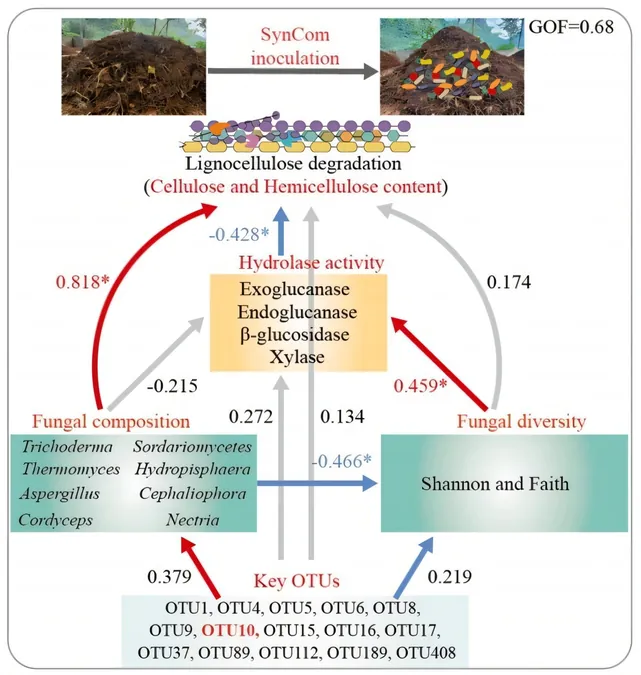
Revolutionizing Agriculture: How Synthetic Microbial Communities Boost Composting and Crop Growth
2025-07-22
Author: Olivia
Unlocking Nature's Secrets for Sustainable Farming
A groundbreaking study led by Prof. Li Dejun from the Chinese Academy of Sciences reveals that synthetic microbial communities (SynCom) could be the game-changer we need in agriculture. This research shows how these engineered microbes can dramatically enhance the breakdown of tough plant materials, transform compost, and supercharge crop growth.
The Power of Composting in Modern Agriculture
Composting has long been recognized as an eco-friendly way to recycle agricultural waste into valuable fertilizers while improving soil health. With the integration of SynCom, experts are now harnessing the power of these microbial alliances to make composting more efficient and effective than ever.
How SynCom Speeds Up Decomposition
The research team uncovered vital mechanisms that allow SynCom to thrive during the heat of composting processes. Their findings revealed that introducing these microbial communities drastically reduces lignin, cellulose, and hemicellulose, while simultaneously boosting crucial enzymes that facilitate breakdown.
A Microscopic Metamorphosis
Metagenomic analyses unveiled how SynCom enhances microbial metabolic pathways related to key processes like carbohydrate, amino acid, and energy metabolism. This optimization improves both the structure and function of microbial communities at the genetic level, underscoring the sophistication of these synthetic solutions.
Fungal Allies in Composting
Furthermore, SynCom doesn’t just work alone—it fosters a thriving community of fungi crucial for decomposition. The study noted significant increases in beneficial fungal genera that target lignocellulose, enhancing the compost’s transformation process and leading to higher-quality organic fertilizers.
Harvesting Benefits: Enhanced Crop Growth
The potential of SynCom reaches beyond compost. When tested on pepper plants, the results were nothing short of remarkable. The inoculated plants showed improved height, stem diameter, leaf count, chlorophyll levels, and root vitality. Imagine the possibilities for agricultural productivity!
A Bright Future for Sustainable Agriculture
These revolutionary findings mark a pivotal step towards greener agriculture. By effectively managing agricultural waste and improving crop yields, synthetic microbial communities provide innovative strategies that promise to reshape the future of farming.
The Path Ahead
As research into SynCom continues to unfold, its potential benefits for composting and agricultural production will become increasingly apparent. This could play a vital role in nurturing the next generation of sustainable agriculture—an exciting prospect for farmers and nature alike!









 Brasil (PT)
Brasil (PT)
 Canada (EN)
Canada (EN)
 Chile (ES)
Chile (ES)
 Česko (CS)
Česko (CS)
 대한민국 (KO)
대한민국 (KO)
 España (ES)
España (ES)
 France (FR)
France (FR)
 Hong Kong (EN)
Hong Kong (EN)
 Italia (IT)
Italia (IT)
 日本 (JA)
日本 (JA)
 Magyarország (HU)
Magyarország (HU)
 Norge (NO)
Norge (NO)
 Polska (PL)
Polska (PL)
 Schweiz (DE)
Schweiz (DE)
 Singapore (EN)
Singapore (EN)
 Sverige (SV)
Sverige (SV)
 Suomi (FI)
Suomi (FI)
 Türkiye (TR)
Türkiye (TR)
 الإمارات العربية المتحدة (AR)
الإمارات العربية المتحدة (AR)